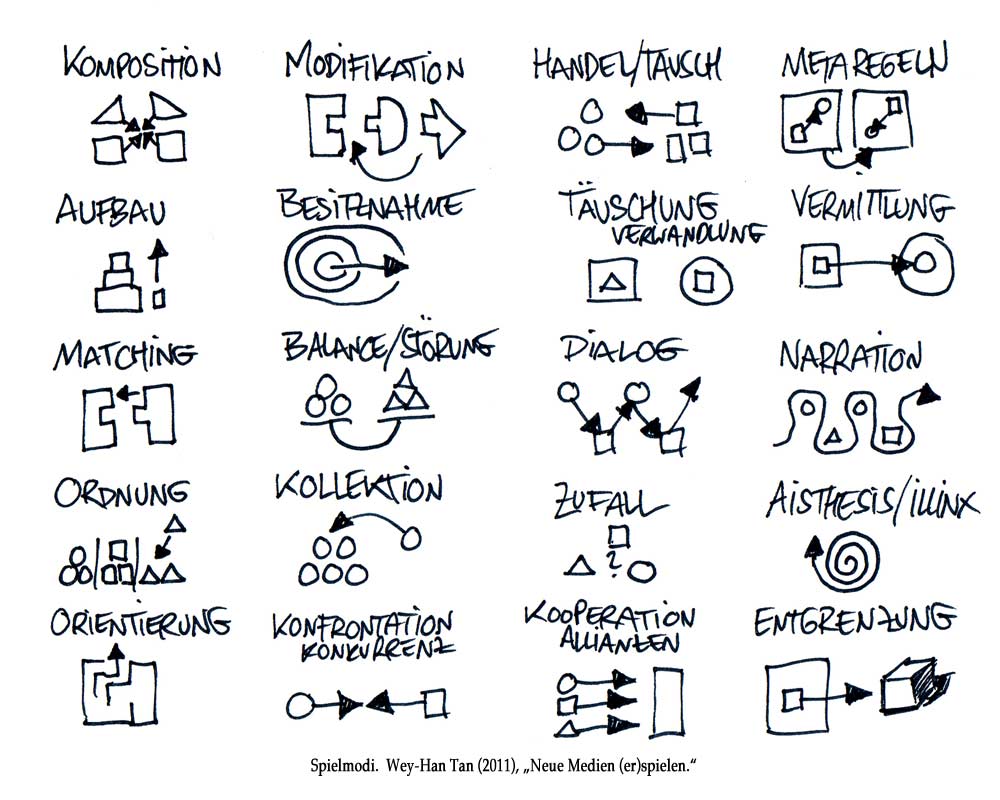Was sind Planspiele?
Planspiele sind eine Kombination aus Rollenspiel, Ressourcenmanagement, Fallstudienbeschreibung und Kommunikation. Prinzipiell schlüpfen die Spieler*innen dabei in einem Szenario in die Rollen verschiedener Akteure und erhalten vor Spielbeginn ein Briefing über deren Interessen, Motivationen, Ressourcen sowie den Ablauf der Spielrunden, in der sich die Spieler*innen über ein gemeinsames Vorgehen verständigen sollen.
Die Wirksamkeit des Planspiels liegt dabei in der Agency der Spieler*innen: Es werden die verschiedenen Standpunkte nicht nur vermittelt, sondern in ihren Entscheidungen und Widerständen auch erfahr- und erlebbar gemacht. Eine Debriefingphase verknüpft die im Spiel gewonnenen Eindrücke – auch Emotionen – mit realweltlichen Aspekten des Spiels.
Die nachfolgenden Hinweise zu den Planspielen sind passend und wertvoll für Betrachtung, Planung, Einsatz und Debriefing auch anderer didaktischer Spiele ab einem gewissen Komplexitätsgrad!
Capaul und Ulrich (2003, 14) definieren Planspiele so:
„Das Planspiel versetzt die Teilnehmerinnen in eine fiktive Situation, die ein vereinfachtes Abbild einer speziell ausgewählten, realen oder hypothetischen Situation ist. Während mehreren Spielrunden machen sich die Teilnehmerinnen mit dem Szenario vertraut, sie analysieren die Ausgangslage und die Ziele, führen Verhandlungen und fällen konkrete Entscheidungen. Daraus wird mit Hilfe des Planspielmodells die Ausgangslage für die nächste Spielrunde ermittelt. Der Einsatz eines Computers ist dabei nicht zwingend.
Während der anschliessenden Transferphase werden die Erfahrungen aus dem Planspiel mit der Realität verbunden. Während dieser Reflexionsarbeit entwickeln die Teilnehmerinnen ihre handfesten Erfahrungen aus dem Planspiel zu praxiswirksamen Handlungswissen weiter.“





